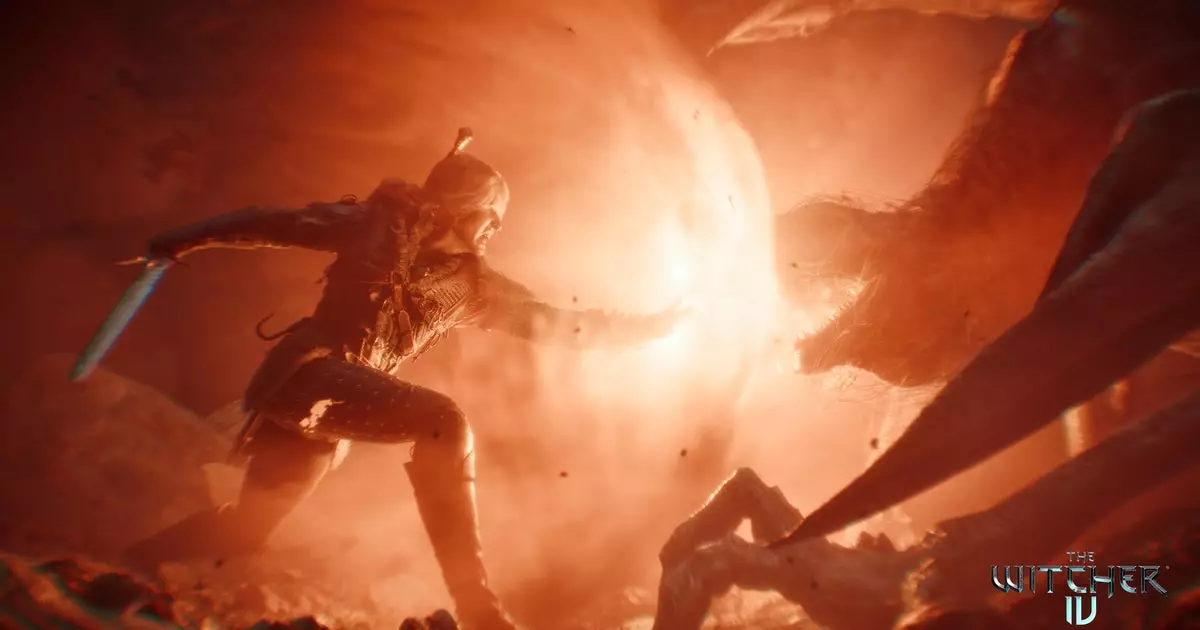The gaming world is abuzz with excitement as the announcement of The Witcher 4 positions Ciri – a beloved character from The Witcher 3: Wild Hunt – as its protagonist. This shift in focus has ignited a wave of discourse online, hitting a spectrum that runs from irreverent internet commentary to thoughtful examinations of Ciri’s suitability as the lead. In particular, some fans express disbelief or disappointment over a woman taking on a role traditionally held by a male character, pointing to issues of representation in video games. However, a deeper dive reveals that Ciri not only fits within the lore established by Andrzej Sapkowski’s novels but may also rejuvenate the narrative direction of the franchise.
One critical aspect of Ciri’s role that cannot be overlooked is her complexity. While some factions criticize her as an unsubstantiated protagonist, developers from CD Projekt have pointed out that, within the source material, she is frequently depicted as a witcher in her own right. Both game director Sebastian Kalemba and narrative director Philipp Weber firmly argue that Ciri’s character represents a continuous evolution of the series’ storytelling. Her inclusion signifies not only a fierce, independent character but also echoes a legacy built on strong narrative foundations.
Ciri differs from Geralt in important ways; while he is defined by his experiences as a seasoned monster hunter, she is on the brink of her journey. This unique positioning offers a fresh narrative canvas for exploring who Ciri will ultimately become. With Geralt’s arc largely set, the new game promises to offer players a chance to influence Ciri’s path and choices in ways that are different from the previously established characters.
Interestingly, this narrative shift comes at a time when the gaming industry is increasingly interrogating its portrayal of gender roles. Many traditional fantasy narratives often present broad, misogynistic tropes, and The Witcher series has not been an exception in its past portrayals. However, Weber has indicated a conscious effort to branch out and question these dynamics within the game’s world. Ciri’s perspective as a female character navigating a world punctuated by male-centric lore and challenges will undoubtedly allow The Witcher 4 to delve into complex themes surrounding gender.
By engaging with these themes, the game aims to maintain its reputation for adult storytelling. Unlike many titles that shy away from heavier issues, The Witcher 4 seems poised to confront the darker aspects of its universe head-on. This addendum adds a layer of depth, allowing players to grapple with nuanced portrayals of gender while enjoying an immersive narrative experience.
Beyond the narrative implications, the transition to Ciri opens intriguing questions about gameplay mechanics as well. Notably, she possesses a distinct set of supernatural abilities that could diverge from the melee combat style popularized by Geralt. While some players may wonder if this change could disrupt established gameplay, it also presents an opportunity for innovative design elements and combat dynamics. Ciri’s abilities might encourage players to approach quests and conflicts from fresh angles, moving past the sword-and-sorcery formula that has largely defined the series.
One key question remains unanswered by the developers: how will they balance Ciri’s immense power as a character with the gamification of progression? This consideration is essential, as players will need a satisfying sense of growth without feeling overwhelmed or underpowered. Kalemba hinted that this concern was prioritized early in development, signifying an awareness that player experience hinges on the meticulous design of Ciri’s journey.
As anticipation builds for The Witcher 4, there is an undeniable buzz surrounding the adventure that lies ahead for Ciri. This initial insight suggests that CD Projekt has learned from its previous installments, showing a commitment to meaningful storytelling and character evolution. The challenges posed by gender roles, along with opportunities for innovative gameplay, paint a promising picture of what is to come.
As we await further details, one thing remains clear: the shift to Ciri signifies an ambitious reimagining of a beloved franchise. The narrative potential surrounding her character opens ways for a more inclusive and engaging experience that could resonate with a broader audience. The Witcher 4 is not just about stepping into an old world but re-exploring it through new eyes that promise to change the game entirely.


Leave a Reply